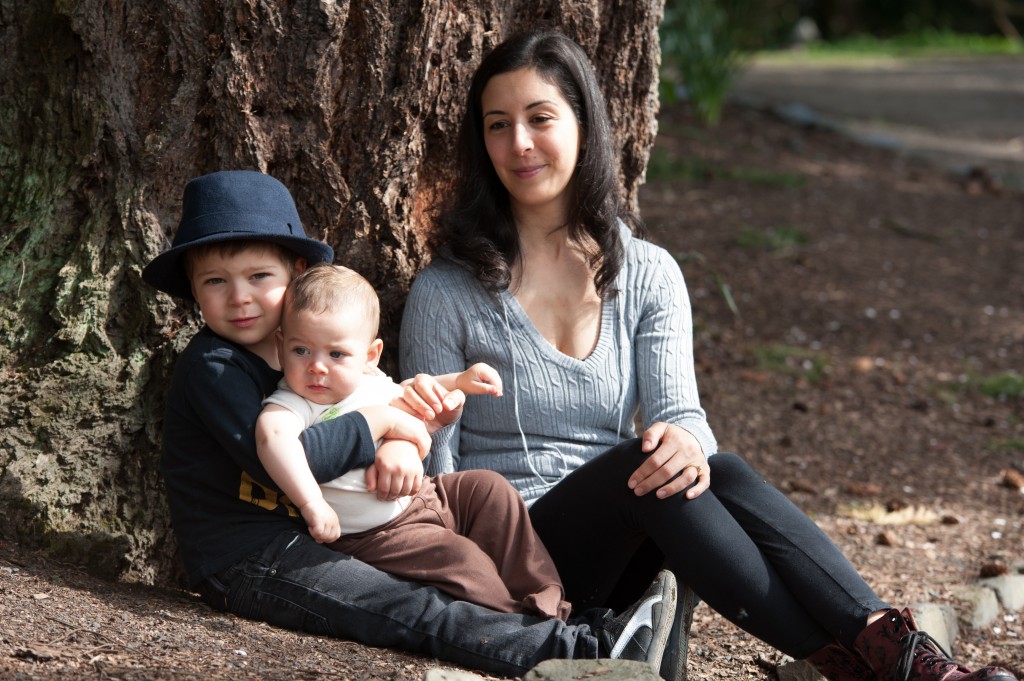 I always knew I wanted to breastfeed. I would listen in awe when my mother would talk about breastfeeding me and my sister, and there was no doubt in my mind I would breastfeed my own children as well. Giving birth to my son Franklin wasn’t easy, and breastfeeding was not something that happened naturally and effortlessly, but we stuck with it, and 3 years later, until I got pregnant with Nicholas, he was still enjoying drinking the milk my
I always knew I wanted to breastfeed. I would listen in awe when my mother would talk about breastfeeding me and my sister, and there was no doubt in my mind I would breastfeed my own children as well. Giving birth to my son Franklin wasn’t easy, and breastfeeding was not something that happened naturally and effortlessly, but we stuck with it, and 3 years later, until I got pregnant with Nicholas, he was still enjoying drinking the milk my
body produced just for him – and I loved feeding him just as much!
Over the next few weeks, I will be sharing stories from strong mamas who overcame obstacles in their breastfeeding journey. Many of us think that feeding our young is the natural thing to do, and it is, so what could possibly go wrong? But my own experience, coupled with the testimonies of friends as well as strangers, showed that it is not always easy.
Latching on can sometimes take weeks to be done well, and sore nipples are often an issue. But do not let this discourage you! Any issues are usually resolved within the first month or so, and once you and your baby get the hang of it, breastfeeding becomes a complete joy.
My first son Franklin took quite a while to manage to latch on well, but after a few months, he was able to latch on in any position. I once jokingly told my friend Eva that if I were to toss him in the air, he’d manage to latch on on his way down! The truth is that latching on is not always easy, especially if your baby had to be taken away from you soon after delivery.
If you are still pregnant, let your doctor or midwife know that you wish to breastfeed right away, before weighing and measuring the baby (which are trivial compared to breastfeeding successfully!) If latching on does not work right away, ask for the advice of a lactation specialist. More often than not, your child will learn to latch on efficiently and difficulties will soon be forgotten.
Also, during the first few days, colostrum rather than milk is produced. A very nutritious liquid, high in antibodies, protein, and a myriad of nutrients, colostrum isn’t usually produced in very high quantities. As a result, you may think you are not producing enough, especially if your baby goes through a phase of weight loss and seems hungry. Ask for the advice of a lactation consultant or a breastfeeding friendly doctor, as these symptoms are actually very common and normal most of the time. The baby’s weight will then go back up, and breastfeeding will become easier.
Nipple pain is often mentioned as an obstacle to breastfeeding. A friend of mine pointed out that before breastfeeding our first child, our nipples rarely “got any action.” That being said, even after nursing Franklin for 3 full years, and with only 6 months of break before I gave birth to my second boy, Nicholas, I still got sore nipples. The soreness is due to hormonal changes, and there isn’t much you can do about it. It will often take 2-3 weeks to get used to near constant sucking, but once this phase is over with, any pain will disappear and will be replaced with great joy and pleasure at feeding your beautiful baby (until then, coconut oil and lanolin help a lot. Apply liberally!).
Still, despite our best efforts, we breastfeeding mamas can sometimes end up with plugged milk ducts and mastitis. Seek professional help whenever needed, but the best solution to plugged milk ducts is none other than breastfeeding. Simply try to switch positions, and breastfeed as often as desired. And most importantly, remember to relax and rest. Often, plugged ducts and mastitis are caused by stress. Get help around the house, eat well, and try to let go of anything that is not necessary.
Below, you will find the complete list of stories. Any stories not yet linked will be active in the next few days, so check often!
Breastfeeding While Battling Cancer – by Magdalena Maslowska
Breastfeeding Through Physical Pain and Lack of Support – by Tricia Swenson
Breastfeeding the Colicky Baby With Metastisized Thrush – by Kristin York
Breastfeeding Twins – by Mary Kay Simoni
Overcoming Thrush, Mastitis and More – by Ashley Miller
Breastfeeding through Loss and Depression – by Sarah Foskett
Persistence Through Challenges – by Therese Totten
“Honk if you love your Lactation Consultant!” – by Melissa Barnes
I hope that these stories inspire you to follow your instinct, whether it is to breast feed for a few months or for several years. Every child is different,
and no one can tell you what you should or should not do. Motherhood, as they say, isn’t for the faint of heart, and you will probably have to take
many decisions that no one else can take for you. And that’s totally fine.
If you have recently given birth to your first child, be prepared for a magical experience which will give you confidence in your own abilities in a way nothing else can. Trust yourself, and listen to your heart!
